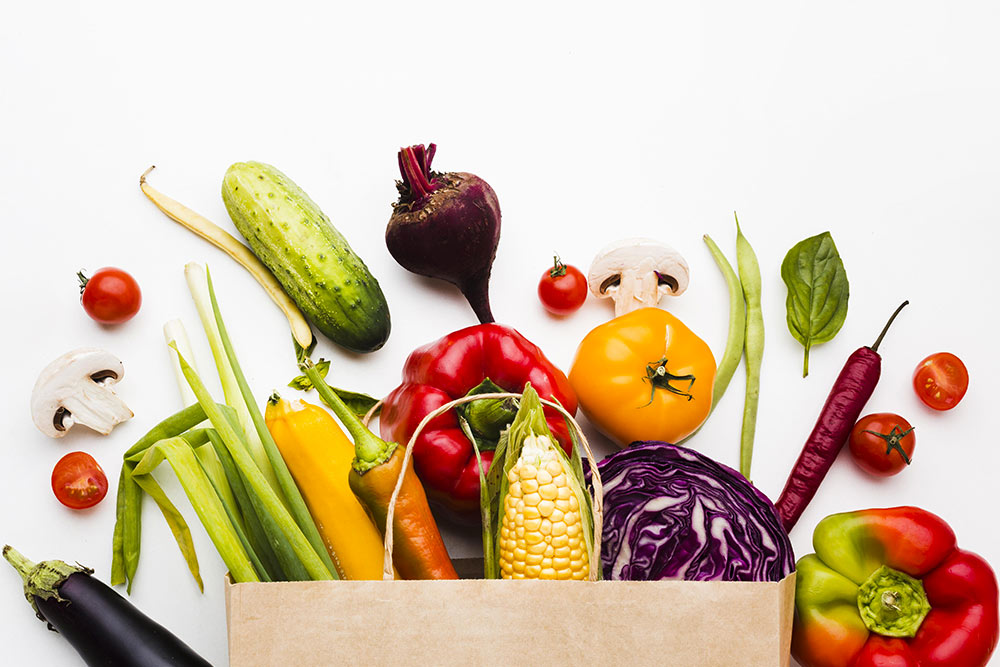Heart: Potatoes and Tomatoes
Potatoes are rich in potassium, which can help regulate blood pressure, reducing the risk of cardiovascular diseases. Tomatoes are a source of lycopene, an antioxidant that helps prevent damage to arteries and promotes heart health.
Brain: Salmon, Tuna, Sardines and Walnuts
Fatty fish such as Salmon and Tuna are rich in omega-3 fatty acids. These nutrients are essential for brain health, helping to improve memory and cognitive function. Consuming fish regularly can reduce the risk of age-related cognitive decline and promote the health of the nervous system. Walnuts, besides being a delicious snack, are a treasure for brain health. They are rich in omega-3 fatty acids, antioxidants, and vitamin E, which work synergistically to enhance cognitive function, reduce inflammation, and protect precious brain cells from damage.
Bones: Milk, Oranges, and Celery
Calcium is crucial for bone health, and dairy products like milk, yogurt, and cheese are rich in it. Leafy green vegetables like kale and broccoli provide calcium and vitamin K, which help keep bones strong and resistant to fractures. Oranges are a rich source of vitamin C, an essential nutrient for bones health. Vitamin C plays a crucial role in collagen formation, a structural protein present in bones, cartilage, and skin. It also contributes to the absorption of calcium, a key mineral for bone health.
Skin: Berries, Salmon, and Green Tea
Berries such as strawberries, blueberries, and blackberries are rich in antioxidants that preserve the youthfulness of the skin and protect it from premature aging. Salmon, thanks to omega-3 fatty acids, reduces skin inflammation and improves hydration, promoting elasticity and less prone to dry skin. Green tea, with polyphenols and catechins, protects against UV damage, improving skin elasticity.
Digestive System: Plums and Yogurt
Plums improve intestinal regularity and help prevent constipation, promoting easy digestion. Moreover, yogurt is an excellent source of probiotics, the “good” bacteria that support the health of the intestinal flora. Regular consumption of yogurt promotes optimal digestion and improves nutrient absorption.
Eyes: Carrots, Eggs, and Corn for Healthy Vision
To maintain healthy vision, it is important to include foods like carrots, rich in beta-carotene, in your diet. This antioxidant promotes eye health and helps prevent vision-related diseases, improving retinal function. Eggs and corn are sources of lutein and zeaxanthin, essential nutrients that protect the retina from damage caused by UV rays. By regularly consuming carrots, eggs, and corn, you can effectively support the health of your eyes, maintaining clear vision and preventing age-related problems.
Lungs: Broccoli and Brussels Sprouts
Broccoli and Brussels sprouts, rich in antioxidants and vitamin C, contribute to maintain lung function. Vitamin C helps keep lung mucous membranes hydrated, facilitating the exchange of oxygen and carbon dioxide.
Muscles: Bananas, Fish, Eggs, and Red Meat
Water plays an essential role in keeping muscles well-hydrated, preventing cramps and tension. By incorporating proteins into your diet, such as those found in fish, eggs, red meat, and bananas, you can build and maintain strong muscles. Bananas provide potassium, which prevents cramps and unwanted muscle contractions. Fish provides lean proteins and omega-3 fatty acids that reduce muscle inflammation. Eggs and red meat are rich in high-quality proteins, essential for muscle strength.
Hair: Salmon, Leafy Vegetables, and Beans
Salmon, with its omega-3 fatty acids, helps keep the scalp hydrated from the inside and promotes strong and resilient hair. Leafy vegetables, such as spinach and kale, provide important nutrients like biotin and vitamin E, contributing to hair health. Beans, rich in proteins and iron, promote hair growth and prevent hair loss.
Eating targeted foods to support the health of every part of your body is a wise choice. Incorporating these foods into your daily diet can help keep each organ and system in excellent shape, promoting long-term health and overall well-being. Always remember to consult a health professional or dietitian before making significant changes to your diet.






